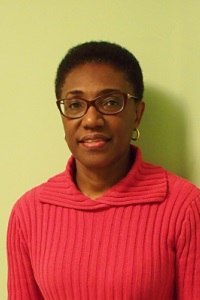Member Spotlight: Bevoline Nwachukwu

Name: Bevoline Nwachukwu, BSc, MLT, MB(ASCP)cm
What is your professional title? Charge Technologist
How did you decide to enter the field/what (or who) brought you into the field?
I decided to enter the field from a microbiology background as I had a great interest in microbial genetics and cancer genetics. During this time, I discovered that Molecular Biology was emerging as a fairly new and independent lab field. I registered and started a Master’s degree in Molecular Biology, as I wanted to be ready for any opportunity that arose. An opportunity came, and I joined what was then a new cancer lab, which is now one of the largest genetics labs in Canada
What do you do? How would you describe your role?
I started as a bench technologist in molecular oncology. I had limited technical/practical experience, but with the help of my director and much reading and practice, I quickly developed and transitioned from a bench technologist, to a Senior Technologist and later to Charge Technologist. I am in charge of technical supervision and help to ensure that all quality control functions are met, in order to enable the generation of reliable results, which are further checked and reported by the scientific staff.
How does your work help patients?
The Genome Diagnostics Lab in which I work focuses on the use of leading edge genetic technologies to diagnose and monitor disease in patients with inherited and acquired disorders and in this way, we aid in patient diagnosis and management.
What degree(s) and/or training did you receive to achieve your position?
When I started, there were no formal training programs specifically for genetic technologists in Canada, but one needed to have a Bachelor’s degree (or equivalent) and have at least some other laboratory experience. A training program later developed at the Michener Institute in Toronto - our lab played an integral role in training the first set of students. This program has grown significantly over the years but is still limited in intake by the number of labs that are available to train students. A Bachelor of Science degree with at least two University level genetic courses is required to enter the seventeen month-long program. At the end of the program, students write a national exam and successful candidates become certified with the Canadian Society for Medical Laboratory Sciences (CSMLS) and in Ontario, you are then qualified to register with The College of Medical Laboratory Technologists of Ontario (CMLTO) – a professional body.
What is the greatest challenge you face in your work?
It is stimulating to work in this field, as it is very dynamic. However, it is a challenge to stay abreast with the ever-changing technologies in order to keep current. Additionally, the field is constantly growing so it is difficult to keep up with demands from budget, space and personnel perspectives.
What is the best part of your work as you see it?
I love the fact that because the field is so dynamic, one is always learning. The field also attracts a group of innovative technologists and scientists who make it interesting. There is also a significant amount of inter-professional collaboration as the field encompasses so many other disciplines. On occasion one gets to attend a conference like AMP where one is introduced to new technologies and trends as well as meet with other professionals of like mind.
What AMP resources /courses have helped you advance your career?
The resources that I have found to be most useful are the various webinars, JMD and of course the AMP meetings.
In your opinion, what are the most valuable aspects of AMP membership?
The aspects of membership that I find most valuable are as follows - having access to an online community of likeminded individuals with whom I can network, having discussions and exchanging ideas. Membership also allows access to JMD and provides discounts to the Annual Meeting.
This feature is a collaboration between the AMP Membership Affairs Committee and Training and Education Committee. If you would like to nominate an AMP member to be interviewed (self-nomination is fine) please contact ampeducation@amp.org.






















